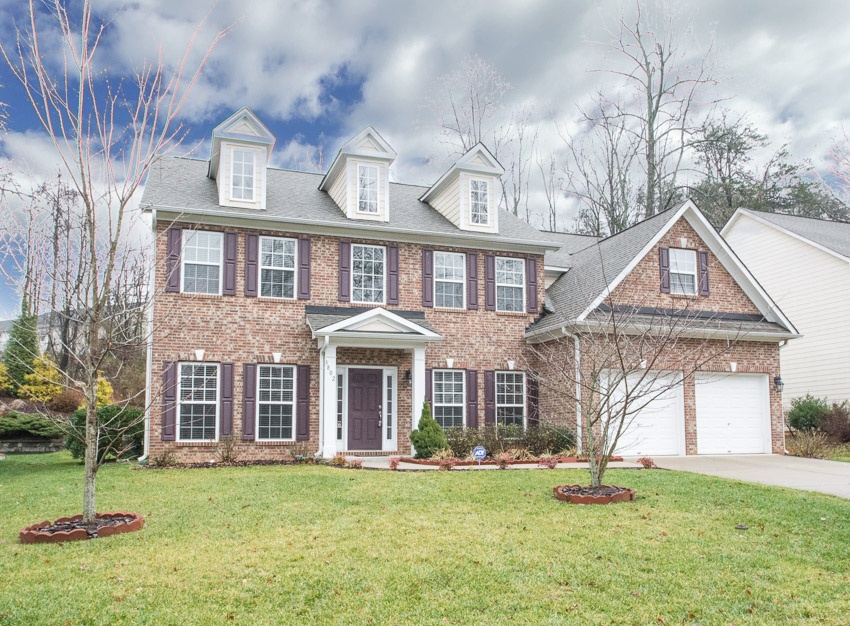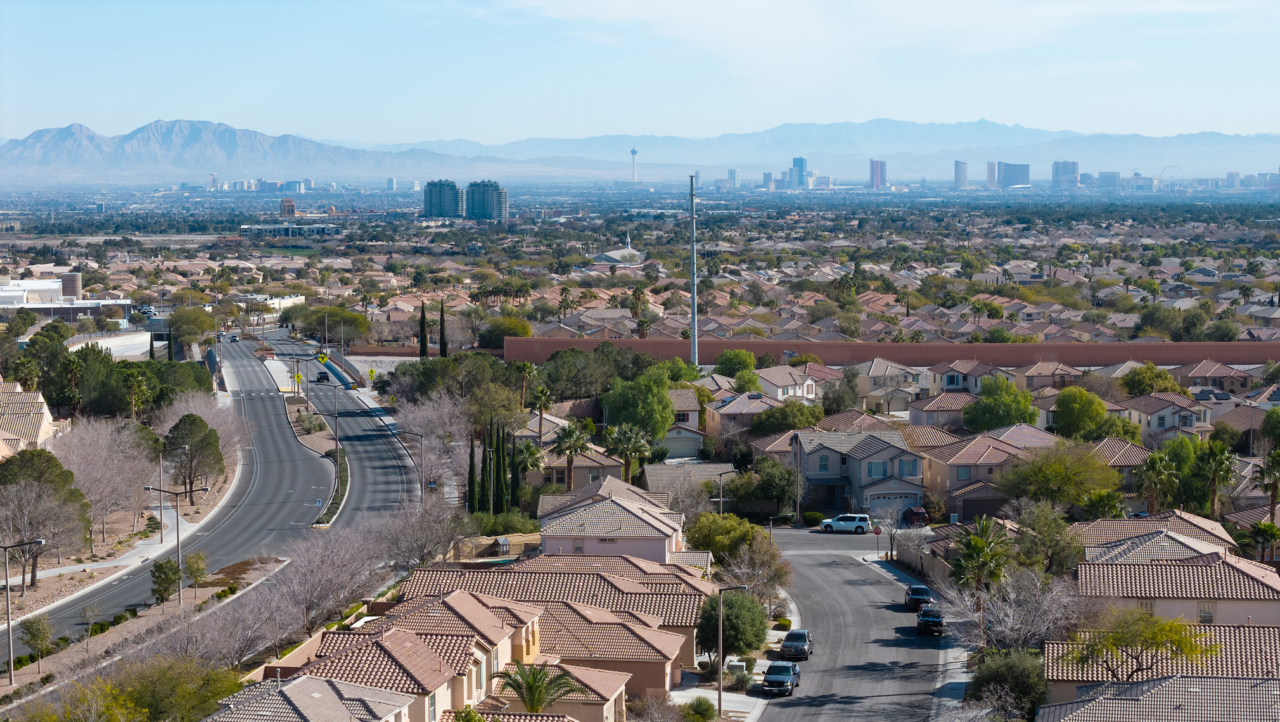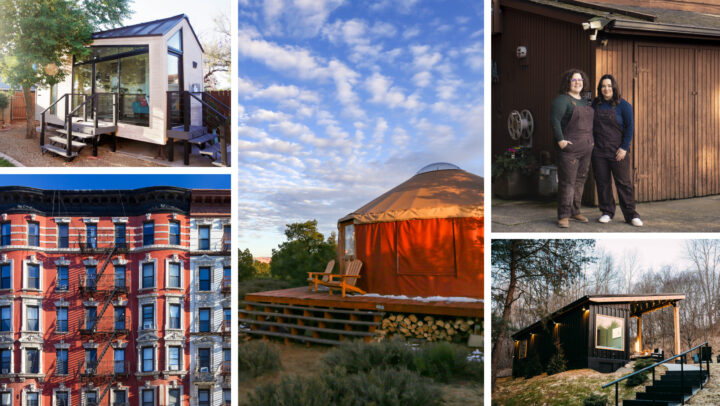What Is an HOA?
Before you buy a home in an HOA-governed community, make sure you review the rules thoroughly.


Written by Jennifer Lyons on October 15, 2025
Reviewed by Jeff Rankin, Edited by Alycia Lucio
Key takeaways
- HOAs manage and maintain shared community spaces, enforce rules, and collect dues from homeowners.
- Fees can range widely and cover amenities like pools, landscaping, and security.
- Before buying, review the HOA’s rules, financial health, and history of special assessments.
If you’ve started exploring homes to buy or rent, chances are you’ve seen listings that mention an “HOA.” HOA stands for homeowners association, a community-based organization designed to help individual neighborhoods run smoothly and feel cohesive. Think of it as a resident-led team that keeps the community looking great, operating efficiently, and offering perks like shared amenities and organized services. While HOAs are most commonly associated with condos and townhome complexes, many modern neighborhoods of single-family homes also rely on them to maintain consistent standards and create a strong sense of community.
Understanding what an HOA does, from setting community standards to maintaining amenities, can help you decide if this type of community fits your lifestyle.
How does an HOA work?
When you rent or buy a home in a community managed by a homeowners association (HOA), membership isn’t optional; you automatically become part of the association. That means you not only contribute to its upkeep through fees but also get a say in how it’s run by voting for or even serving on the elected HOA board. In short, an HOA can feel like a partnership: you help support the community, and in return, you enjoy the benefits of a well-maintained and thoughtfully managed place to live.
What do homeowners associations do?
At their core, HOAs exist to help communities run smoothly and maintain strong property values. A board of elected residents typically oversees these responsibilities:
Set and enforce community rules and standards
HOAs establish guidelines for property standards and community living. These rules, often outlined in a document known as the Covenants, Conditions, and Restrictions (CC&Rs), can include:
Exterior home appearances
Guidelines for house paint colors, lawn care, and landscaping help maintain a cohesive look throughout the neighborhood.
Noise levels and quiet hours
Many HOAs set expectations for acceptable noise levels to preserve a peaceful atmosphere for all residents.
Pet policies
Rules may include limits on pet breeds, sizes, or leash requirements to make sure that pets and neighbors coexist harmoniously.
Parking regulations
HOAs often manage where residents and guests can park, helping to avoid congestion or blocked access points.
Maintain shared amenities
An HOA also takes responsibility for the care and upkeep of shared spaces and facilities, ensuring they remain safe and inviting. Some of the facilities that fall under an HOA include:
Clubhouses
Community centers or clubhouses may host neighborhood events, meetings, or private reservations for residents. The HOA maintains these facilities and regulates how they’re used, including setting any applicable reservation fees or fines for misuse.
Pools
Regular cleaning, maintenance, and seasonal readiness help everyone enjoy the pool safely.
Playgrounds
HOAs maintain playground equipment and surrounding areas so families can use them worry-free.
Fitness centers
Upkeep includes maintaining exercise equipment and ensuring safe, clean spaces for residents to work out.
Green spaces, parks, and trails
HOAs care for walking paths, open green areas, and parks within the community, so the neighborhood remains a pleasant and active environment.
Manage neighborhood services
Beyond rules and amenities, many HOAs take on the responsibility of organizing essential services that make life in the community run smoothly. Depending on the neighborhood, this can include everything from weekly trash and recycling pickup to snow removal during the winter months. In warmer climates, it might involve coordinating landscaping for shared spaces or maintaining irrigation systems so green areas stay healthy and vibrant year-round.
Mediate resident disputes
Even in the most welcoming neighborhoods, disagreements can arise — whether it’s a dispute over property lines, noise levels, or compliance with community guidelines. In these situations, the HOA board often steps in as a neutral party to help resolve issues before they turn into bigger conflicts.
Using a structured process for communication and resolution, HOAs can keep tensions low, promote fairness, and guarantee that the neighborhood remains a comfortable place for everyone to live.
Pros and cons of living in an HOA community
HOAs can create a well-maintained, community-driven environment, but they may not be the right fit for everyone. Here’s a closer look at what to expect:
Pros
- Well-kept surroundings: Landscaped spaces and maintained facilities help neighborhoods feel inviting.
- Shared amenities: Enjoy perks like pools, gyms, or green spaces without the hassle of ownership.
- Property value stability: Homes in tidy, well-managed communities often maintain or even grow in value.
- Built-in support: Disputes are easier to handle through a structured process.
- Added security: Some HOAs provide gated entry or patrol services for peace of mind.
Cons
- Added costs: HOAs require a monthly fee, which is an extra expense on top of your mortgage or rent.
- Rules and restrictions: Guidelines can feel limiting if you prefer maximum flexibility in how you use your property.
- Disagreements with the board: Clashes can occur over fines, policies, or financial decisions.
- Financial risks: If mismanaged, an HOA might underfund maintenance or levy sudden special assessments. This may mean paying more money on top of your monthly HOA fees and rent or mortgage costs.
What are some typical HOA fees?
HOA fees cover the services and amenities that keep a community running. These costs vary widely based on location, size, and available perks. If you lived in New York, for example, you could expect to pay around $998 a month, versus $109 in Texas. According to Zillow’s guide to HOA fees, here’s what to expect:
Monthly and annual dues
Most HOAs charge between $200 and $500 per month for communities offering basic amenities and maintenance. Luxury or resort-style communities may exceed $1,000 monthly. These fees typically fund landscaping, upkeep of common areas, insurance for shared spaces, and utilities for facilities.
Special assessments
If major repairs or upgrades are needed, such as replacing a shared roof, an HOA may charge a one-time assessment in addition to regular dues. Reviewing the HOA’s budget and reserves before you buy can help you avoid surprises.
How to find a home with low HOA dues on Zillow
You can find homes within an HOA community on Zillow and narrow your search to find homes with low HOA fees that fit within your budget. When looking for homes with low HOA fees, filter your search results on Zillow based on HOA dues using the following steps:
- Go to Zillow and enter the neighborhood, city or ZIP where you want live
- Select “More” filters in the search bar
- Enter your desired maximum HOA fee under the HOA filter
- Apply the filter and browse homes that meet your criteria
This tool helps you compare options and find a home that not only fits your needs but also keeps monthly expenses manageable.
Is an HOA right for you?
Choosing a home in an HOA community depends on your priorities. If you value convenient amenities, well-kept surroundings, and a neighbor-driven atmosphere, it could be a great fit. But if you prefer fewer rules and complete freedom over your property, an HOA might not suit your style.
Before making a decision, talk with a Zillow premier agent who can help you review an HOA’s rules, fees, and financial health. Asking the right questions, including the cost of monthly dues, upcoming assessments, and the HOA’s management policies, will make sure you know exactly what you’re signing up for.
A local agent can help you stay competitive on a budget.
They’ll help you get an edge without stretching your finances.
Talk with a local agent


